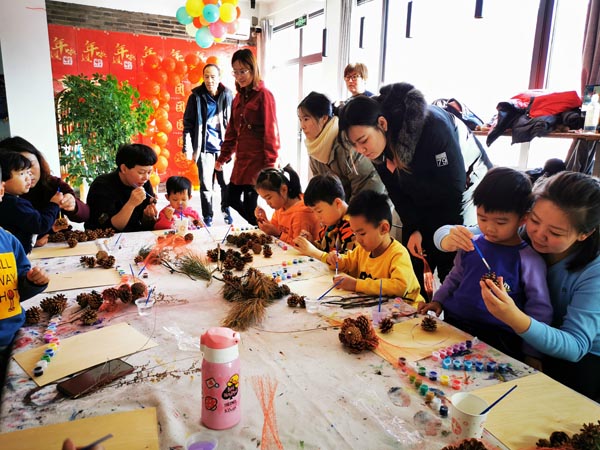New days for homestays


Bookings nationwide recovered by 65 percent during the holiday over the same period last year, Beijing-based short-term accommodation platform Tujia reports.
Homestays in rural areas have been popular in Sichuan province's capital, Chengdu, Zhejiang province's capital, Hangzhou, and Shandong province's capital, Jinan, Tujia reports.
But many owners are cautiously optimistic toward their recoveries.
"People are spending money all the more carefully," says Wang Dalei, who owns wooden cabins in southwestern Beijing's Fangshan district.
Wang's cabins are scattered throughout a forest, and many of his customers previously would pay for outdoor experiences after checking in.
But they prefer to stay inside the cabins now, Wang says, adding that many customers with children have asked for fast internet since their kids need to take online classes during their stays.
"They don't spend on virtually anything other than room and board," Wang says.
Zhao Xiaojun, who runs a homestay in northeastern Beijing's Pinggu district, says farmhouses that offer catering have been full of tourists, especially those with good locations.
However, not as many travelers stay overnight. A considerable number visit scenic spots in the area and return home after enjoying a farm-style meal, Zhao says.
Experts say it'll take time for homestays to fully recover, since consumers are cautious after the pandemic.
Health, safety, quality and distinctiveness are travelers' top priorities, Tujia reports.
Popular homestays are likely to flourish compared with those with lower-grade offerings, says Yao Yuan, who runs a homestay in northeastern Beijing's Huairou district.
Many operators are putting epidemic control front and center.
"We've strictly followed relevant regulations since business resumption," Cao says.
He has trained staff in sterilization, and prepared hand sanitizer, antiseptic wipes and facemasks.
Others have come up with new ideas to drum up business.
Wang has planted an herb garden on the edge of his woods.
He plans to serve herbal cuisine to appeal to travelers who value health. Children can plant fruit-tree saplings on his land.
Most homestay operators agree that the outbreak has brought multiple challenges to their development and has forced them to mature.
"We've passed the basic growth phase and aim to create our own brand," Cao says.
Yanqing district has developed about 80 homestay brands.
"Most of our homestays have their own social-media followers and regular clients," Cao says.
He isn't sure he can fully recover the epidemic-induced losses this year.
"A lot remains to be seen, such as if outbound tourism can resume," Cao says.
But he says he'll continue to improve services and add cultural elements.
"We'll stage cycling events or serve as a rest area for cyclists in Yanqing," Cao says.
He also plans to sell local specialties and host cultural-heritage exhibitions and classes, he says.

































